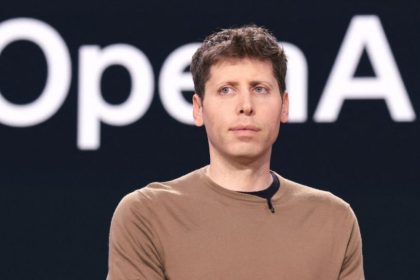With the release of ChatGPT last year, the OpenAI research group started the artificial intelligence race among the technology giants, and today, from large companies such as Microsoft, Google, Amazon, and Facebook to small businesses, they are trying to be at the forefront of this competition. The winning card of this competition are specialized chips that play an important and central role in training and launching artificial intelligence models. Currently, a major part of the market for these chips is in the hands of the chip maker Nvidia, and the complete dominance of this group in the application processors in the field of artificial intelligence forces customers to put up with the astronomical prices of these chips. Now it seems that Nvidia’s monopoly will not last long; Because companies like OpenAI are trying to limit their reliance on expensive processors from other companies by making proprietary chips.
After the unexpected success of ChatGPT, the OpenAI research center started a close cooperation with Microsoft and took advantage of the high processing power of this company to develop its products and provide services to more than 100 million users. According to a news report, the CEO of OpenAI, Sam Altman, is making preparations to build chips that are specifically used in the process of developing artificial intelligence models. Also in recent days, several Microsoft insiders have reported that the Redmond, Washington-based tech giant has begun developing its own dedicated GPUs, which are expected to be unveiled at Microsoft’s annual developer conference.
Sam Altman is no stranger to challenges in the field of artificial intelligence and has previously spoken about the shortage of graphics processing units (GPUs). He considered the skyrocketing cost of processors, along with the lack of supply, as two major problems that disrupt the development process of artificial intelligence. According to Altman, if the users of ChatGPT reach one-tenth of Google, OpenAI will need 48 billion dollars in capital to provide graphics processors and will have to spend an amount equivalent to 16 billion dollars annually to equip and maintain these servers. The creation of artificial intelligence chips by OpenAI will not only save several billion dollars in operating costs for the group, but also by bringing these processors to the market, an extraordinary revenue stream will be formed for the group managed by Altman.
Microsoft, and OpenAI in particular, are not the first companies to think of developing their own processors. Meta, Google and Amazon have already started making artificial intelligence chips; But despite many efforts, they have not achieved significant success until today. For example, Meta, which had long ago started the process of researching and building its own processor, accepted failure and stopped the development process of its chips; However, the company is currently working on a newer and more comprehensive model of AI chips.
The development of artificial intelligence processors by Microsoft, and especially OpenAI, if officially started, is a time-consuming process, and these new processors cannot be expected to be put into operation in the short term. However, the movement of these collections towards self-sufficiency in the field of artificial intelligence chips can have wide consequences; Because it can be expected that the first company that can achieve self-sufficiency in the field of providing the necessary hardware for the development of artificial intelligence, will definitely steal the competition from its other competitors.
What do you think about this? Can the entry of OpenAI into the field of chipmaking challenge Nvidia’s dominance of the market and become a serious competitor for this series, or will the fate of unfinished Meta processors await this company? Share your thoughts with us.


RCO NEWS













